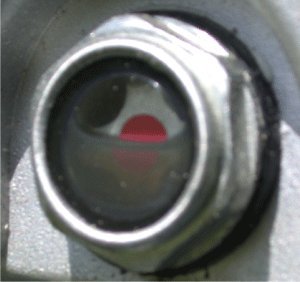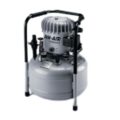Hey! This site is reader-supported and we earn commissions if you purchase products from retailers after clicking on a link from our site.
It can be quite a daunting task trying to figure out how to change your Bostitch compressor oil, how much to use and what is correct Bostitch oil to use right? Well, fear no more, I will answer all these questions in relation to Bostitch compressor oil for you.
Table of Contents
- What Kind of Oil Goes in a Bostitch Compressor?
- How Much Bostitch Oil to Use in a Bostitch Compressor?
- How to Change Bostitch Compressor Oil
What Kind of Oil Goes in a Bostitch Compressor?
It is extremely important to refer to your compressor manual before purchasing Bostitch oil for your Bostitch compressor. We have numerous Bostitch compressor manuals available on our brand page so please visit here first!
The manual will tell you what Bostitch oil is compatible with your air compressor, if you cannot locate your manual, please contact Bostitch directly or visit their website to download a manual for your compressor.
Bostitch Compressor Oils Available Online
I couldn’t find any Bostitch compressor oils sold directly on Amazon but they can be found on the Bostitch website.
Alternative Compressor Oils Available on Amazon
A few alternatives to the Bostitch-advised compressor oils are produced by Mobil. Again, it is very important to ensure the oil is compatible with your air compressor before putting it into the system, so please check first!
The first is the Mobil 101016 Rarus which is suitable for reciprocating air compressors whether they’re single or multistage. This oil lubricant boasts excellent water separability, protection against rust and corrosion, long life for extended oil drain and provides your compressor with very clean air valves.
Prices pulled from the Amazon Product Advertising API on:
Product prices and availability are accurate as of the date/time indicated and are subject to change. Any price and availability information displayed on [relevant Amazon Site(s), as applicable] at the time of purchase will apply to the purchase of this product.
The second is the Mobil 100870, boasting similar benefits as the previous oil but potential to work with reciprocating, rotary screw and rotary vane compressors.
Prices pulled from the Amazon Product Advertising API on:
Product prices and availability are accurate as of the date/time indicated and are subject to change. Any price and availability information displayed on [relevant Amazon Site(s), as applicable] at the time of purchase will apply to the purchase of this product.
How Much Bostitch Oil to Use in a Bostitch Compressor?
Determining how much Bostitch oil a specific model of compressor pump requires can be quite hard if you do not have the actual manual at hand.
You should contact Bostitch directly or search the internet for the specifications of your Bostitch compressor and its model to find the manual if you don’t have it.
I will now provide you with tips on how to check the Bostitch oil level inside your Bostitch compressor before presenting you with a step-by-step guide on how to change it.
Bostitch Oil Sight Glass
The sight glass on your Bostitch compressor will allow you to check the oil level inside the pump, where it should be approximately half way up the red dot like in the image below.

Bostitch Oil Dipstick
It may be possible that the Bostitch compressor pump does not have a sight glass. In this case, you will need to check the Bostitch oil level with the dipstick.
To do so, take the dipstick out of the sump and give it a wipe clean. Push the dipstick back into the sump and then check the markings on it when pulling it out to gauge the Bostitch oil level.

Alternative Method for Checking Bostitch Oil
If you don’t have a sight glass or dip-stick on your Bostitch compressor, you can drain the Bostitch oil from the tank into a reservoir and use this to depict the amount.
How to Drain Bostitch Oil from the Sump
First of all, locate your Bostitch oil plug drain and unscrew it. This will allow you to drain the Bostitch oil out from the sump into a reservoir, gauging how much Bostitch oil was in your pump from the reservoir itself.
Tip: I recommend laying something out on the floor below the compressor like a dust sheet to avoid getting any spillages when draining the Bostitch oil.
How to Change Bostitch Compressor Oil
Changing the Bostitch oil on Bostitch compressors can vary depending on the model. Before doing anything, check the Bostitch compressor model manual or contact Bostitch directly to ensure that your compressor is definitely oil lubricated.
Changing Bostitch Compressor Oil Process
Start by following the steps described for draining the Bostitch oil from the compressor into a reservoir, and then securely tighten the plug back into the bottom of the sump!
Now you can add the replacement Bostitch oil you have at hand into the intake port at the top of the compressor sump. It is very difficult to be any more specific than this due to the fact that the process may vary depending on the model of your Bostitch compressor.
You should aim to add near to the same amount of Bostitch oil that you’ve removed, or gauge it using the sight glass or dipstick if you have either.
Note: when filling the compressor with Bostitch oil, make sure you do not fill the air intake on the pump or overfill the sump as this can lead to damage.
Summary
The above methodology is simplified for ease into the following steps:
- Check the Bostitch compressor oil level
- Locate sump plug on Bostitch compressor
- Drain the Bostitch oil from the sump
- Securely tighten sump plug
- Locate the Bostitch compressor oil intake port
- Replenish the compressor with the same amount of Bostitch oil as removed or gauge it using the sight glass or dipstick (do not overfill)
Without having access to every air compressor model manual and assuming that the manual tells the reader what the Bostitch oil volume is, there is no way to be anything but vague when providing advice about changing Bostitch compressor oil and the amount you should add.
If you have any questions about Bostitch compressor oil, changing it, which to use, and how to use it, then please leave a comment below with photos, if applicable, to help others respond to you!





